Opinion
Pat Leahy: If conservatives like Maria Steen want to have an impact, they need to do three things better
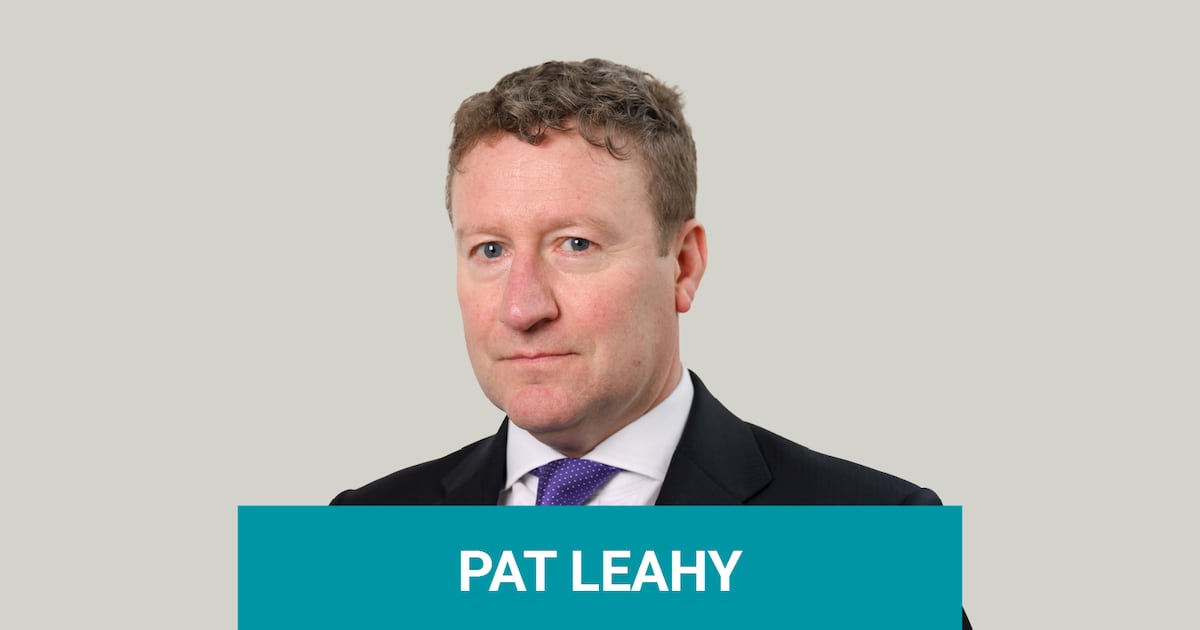
Read more on post.
It’s hard to escape the conclusion that Maria Steen should really be on the ballot paper for the presidential election.
In a very short period of time, her campaign garnered significant support from the public and their elected representatives, both in the Oireachtas and on local authorities. She is clearly a serious person, with a record of participation in major public debates. She didn’t run for attention, nor is she a crank or a gobshite. She would not have embarrassed herself or anyone else in the election campaign. She would not have flopped at the polls. She would have enhanced, not diminished, the debate over the next four weeks.
That does not mean that anyone who has profound political disagreements with her – and who does not want to see her as president – was under an obligation to support her. For this reason, the demonisation of Michael McDowell for not nominating her is misplaced: as is his right, he didn’t want her to be president. Just as the idea that Fianna Fáil, Fine Gael and the coalition of left-wing parties supporting Catherine Connolly had some sort of moral duty to give Steen their support to get into the race is slightly idiotic. That’s not really how elections work.
But there are enough Independents, who share some of Steen’s views or who think that those views should not disqualify her from the public square, to have gotten her over the line. She was only, after all, two votes short. TDs and Senators who have leant into socially conservative support in the past might have considered whether those voters wanted them to put Steen in the race. They might have asked themselves whether they believed the presidential race would be the better with Steen in it.
If they honestly believed that Steen should be kept out, then fair enough. But is that really the judgment they reached? I have my doubts.
Peadar Tóibín, the Aontú leader who promoted Steen’s candidacy, says that upwards of 200,000 voters are now disenfranchised by Steen’s exclusion. I don’t know about that, but I think Steen’s candidacy would have appealed to many of the people who voted against same-sex marriage and abortion liberalisation (also some of those who voted against the family and care referendums last year). Some of these voters see a narrowing of political choice and they see Steen’s exclusion as part of that.
There is a danger that we are moving towards a situation where anyone who holds socially conservative views is excluded from public life. I don’t think that would be healthy for our democracy. Consciously facilitating a broader range of perspectives – such as by nominating Steen – would also be a useful pushback against the Irish tendency towards rigorously enforced groupthink in many matters.
People who point out that conservatives didn’t complain when the groupthink was conservative might be right. But if it was wrong then, it’s wrong now.
All that said, if Steen and her allies had run a better-planned and more carefully executed campaign, she would probably be on the ballot paper now.
There are three lessons for politically-minded social conservatives from the events of recent weeks.
Firstly: organise earlier. Steen did not get into the race until August 29th, and although she had been consulting and preparing for some time before that, she should have been definitively in the field months earlier. Sure, the big parties didn’t decide until relatively late. But nobody left it as late as Steen. Too late.
[ Handbag at the Dáil for Maria Steen as her Áras run comes to an endOpens in new window ]
A pre-summer declaration would have given her sufficient time to meaningfully pursue the council route. Even if that was unsuccessful – and the big parties could have blocked her, as they did with Gareth Sheridan – it would have raised both her own profile and drawn attention to the shut-out, thus increasing pressure on Independent Oireachtas members. If she could come within two votes after just a few weeks, surely a three- or four-month campaign would have got across the threshold.
Secondly: persuade, don’t browbeat. I spoke to some of the people who might have – but didn’t – support Steen’s nomination. All felt under siege from some of Steen’s supporters (though there is no suggestion she was directing this personally) who were lobbying them with varying, and often completely absent, standards of politeness. The social media barrage was as vile you’d expect; but a lot of the calls and emails were also aggressive and intimidating, they told me.
Now look, you can say, c’mon lads: politics is a tough game, put on your big-boy pants. But the question the Steen supporters should be asking themselves is: did this help us? The answer is: it did not. It may, actually, have been decisive.
Thirdly: take on your own extremes. Being willing to confront your own side is not just an example of political courage, it is often something the public notices. The people raging on social media, haranguing and threatening their potential allies did not help Steen. If she had come out against these activities and demanded civility, it would not just have been the right thing to do, it might have helped her win the support she needed.
Often the noticeable thing about conservative voices in recent debates has been how angry they are – angry at their opponents, at the media, at the social trends in their country. I understand the sources of that anger. But it is not conducive to good decision-making and is therefore politically unproductive.
It may be an obvious thing to say, but if social conservatives want to have more political impact, they will need to get better at doing politics.
Opinion
Trump and Putin are threatening to carve up Europe between them. Suddenly, it all feels a bit 1939 | Simon Tisdall
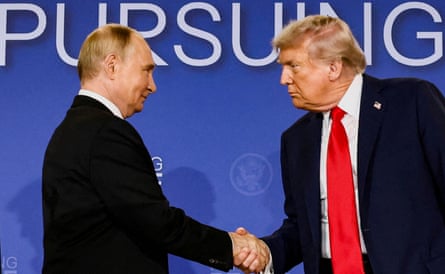
Read more on post.
For many people in eastern Europe, August 1939 may not feel that long ago. That was the moment Hitler’s Germany and Stalin’s Soviet Union secretly agreed to partition Poland and forcibly subsume the sovereign Baltic republics and Finland into their totalitarian “spheres of influence”. The world knows what came next.
Now the question arises: is it happening again? This time around, it’s Donald Trump’s United States and Vladimir Putin’s Russia making the big geopolitical power-play – and, once again, all of Europe is potential prey. Notwithstanding last week’s sparring over Ukraine, the two leaders’ core aims appear closely aligned.
Physical subjugation of the European continent is not a Trump objective (unlike, perhaps, in Venezuela, Canada or Greenland). But US efforts to dominate the continent through political interference, ideological subversion, economic blackmail, unregulated big-tech predation and the projection of conservative, Christian nationalist cultural beliefs amount to much the same thing.
Putin’s methods are cruder, yet his agenda mirrors Trump’s. He will not let go of Ukraine. He is intensifying, and leveraging, the Russian military threat, from the Baltic states to the Black Sea, including in Moldova, Romania and Georgia. Russian hybrid warfare – sabotage, cyber-attacks, online trolling and disinformation – is now a fact of daily western European life.
Trump, failed coup leader, and Putin, indicted war criminal, are not in formal alliance, yet. They have not agreed a 1939-style Molotov-Ribbentrop non-aggression pact. But there is extensive common ground. Both despise European liberal democracy, equal rights and multiculturalism. Both are viscerally hostile to the EU. Both hanker for past imperial glories; both reject UN “globalism” and international law. Their anti-democratic ultranationalism nurtures foul ideas of ethnic and racial supremacy that most Europeans had long consigned to history.
Trump makes no secret of his desire to normalise US relations with Russia. This, he claims, would lead to vast, mutually beneficial money-making opportunities. When he complained last week that Putin has “let me down”, he was not so much talking about his embarrassing Alaska peace summit flop but about the Russian president’s refusal to cut a deal and cash in.
Trump’s supposed pro-Kyiv shift typifies his pinball policymaking, which ricochets randomly from one wacky idea to another. It will not endure. His warning that Russia faces “big economic trouble” was his way of pushing Putin into doing business while leaving Ukraine and European Nato members to manage the long-term Russian threat alone.
The US president is urging others to cut off Russian oil, but the US itself does nothing. Promised tougher sanctions are all talk. He refuses to resume direct military aid to Kyiv, or punish Russian incursions into Nato territory. In this context, his prediction that Ukraine will somehow regain all its lost territory is cruel mockery.
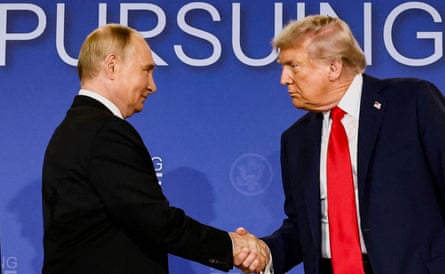
Trump and Putin’s political pressure campaigns are mutually reinforcing. Both support European hard-right, populist-nationalist parties and politicians. In February, the US vice-president, JD Vance, directly intervened in Germany’s election, siding with the far-right Alternative für Deutschland. Trump’s backing for the Polish presidential candidate Karol Nawrocki may have helped the conservative nationalist score a narrow victory.
Similar Russian influence campaigns, plus dirty tricks and alleged vote-buying, have marred elections in Romania and Moldova, which goes to the polls this weekend. Will Trump and Putin conspire to ensure a hard-right populist succeeds Emmanuel Macron as French president in 2027? It’s a legitimate worry.
Both leaders exploit Europe’s open societies, stirring political pots and promoting favourites. In Trump’s case, one such is Giorgia Meloni, Italy’s rightwing prime minister. Another is British anti-migrant populist Nigel Farage, the quintessential useful idiot. In Putin’s case, it’s pro-Moscow leaders such as Hungary’s Viktor Orbán and Slovakia’s Robert Fico.
The most obvious manifestation of hostile US economic pressure is Trump’s unilateral tariffs, which foreshadowed the summer’s risibly lopsided EU-US trade deal. American big-tech’s £31bn UK investment, announced during Trump’s quasi-regal state visit, carries a whiff of neocolonialism. Buying British is fine. But are US billionaires buying Britain?
after newsletter promotion
Putin is even less subtle. Deniable cyber-attacks cripple key European industries and institutions. An undersea communications cable or gas pipeline mysteriously ruptures. Drones force the closure of airports. Undocumented migrants are directed across EU borders. Online scams proliferate. Methods vary. Yet the economic warfare waged on Europe in tandem by Moscow and Washington is real.
A disturbing report by the European Council on Foreign Relations (ECFR) and European Cultural Foundation claims the US is waging a broad culture war against Europe. Yet its central finding – that Trump is promoting political and ideological allies while simultaneously trying to sideline and divide the EU – applies with equal force to Putin’s Russia.
The defence of “free speech”, mounted by Vance during his infamous Munich security conference attack on Europe’s supposed retreat from “some of its most fundamental values”, is a key cultural battleground. And here is another convergence. For Trump and Putin, speech is free – if they agree with the speaker. But not otherwise. (Ask Jimmy Kimmel, or the late Alexei Navalny.) Trump and Putin: two clowns resembling Laurel and Hardy – except their gags are not jokes.
The ECFR report optimistically suggests the dual assault from east and west is drawing Europeans together. Yet, as ever in Europe, what’s lacking is urgency and strong, united leadership. What’s lacking is clear understanding that this US administration, no longer a trusted friend, is turning into an outright enemy; and that the Russian bear, a species once thought extinct, is back with a vengeance.
The evidence grows. So does the threat. Planned or not, Trump and Putin – like-minded, amoral, authoritarian apex predators – are working together, or at least in parallel, to undercut European democracy, security, prosperity and progressive values. It looks like a concerted pincer movement. It feels like 1939.
-
Simon Tisdall is a Guardian foreign affairs commentator
Opinion
Jennifer O’Connell: Backstabbing, cliques, lies … The Traitors is every office you’ve worked in
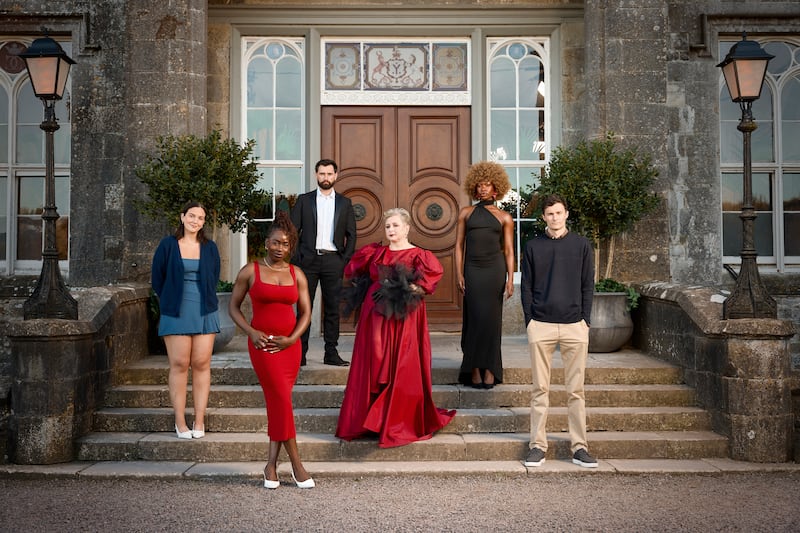
Read more on post.
Sometimes a TV show comes along at just the right time. In the feverish early days of the Covid-19 pandemic, when we were gasping for human connection, it was Normal People with all its charged adolescent longing and sparse dialogue.
Now there is a newcomer in the emerging category of “TV to watch when you can’t take one more second of anything remotely real”: The Traitors Ireland.
In a world of dire global news, fragmented viewing patterns, AI slop, brainrot, Netflix series that start promisingly and then peter out and a presidential election that has petered out before it started at all, the performance of The Traitors is perhaps not surprising, although it is still extraordinary.
Fifty per cent of the available audience tuned in, and the series has been streamed 3.7 million times on the RTÉ Player. It became that rare thing: event TV that was capable of dragging people away from their individual devices, a show that suggested the demise of popular culture may have been grossly exaggerated. As RTÉ’s Grainne McAleer put it, reaching for the preferred unit of currency of Irish television, it was 12 All-Irelands.
On the surface, it’s not too hard to understand its appeal. This is a show about ordinary people – there are no aspiring OnlyFans stars here; they are estate agents, gardaí, tattoo artists, soldiers – playing a game of strategy that involves breaking the rules of social engagement. It is an adaptation of a Dutch game show that pits a group of secretly appointed “traitors” against a majority group of “faithfuls”.
Because there are two routes to elimination – you’re either voted out by your peers on suspicion of being a traitor or you’re killed off by the real traitors – the outcome is wildly unpredictable. Players who go under the radar episode after episode abruptly surge ahead; narcissists and natural leaders draw too much attention to themselves and get killed off under cover of darkness.
(One of the things that makes it feel so twisty is that, according to the UK Times, it is edited backwards, so the production team starts with the eviction and then goes looking for all the signals that lead up to that point, in much the same way as Agatha Christie wrote her books.)
Part of its appeal is that reality TV built around the exploitation of the participants has begun to feel mean and unhealthy. Contestants are brought in on one premise, but everyone watching knows what it’s really about: we’re here to gape voyeuristically as they descend into a self-destructive death spiral.
The Traitors is different. Conflict – murder, in fact – is the core theme. But it’s more Hercule Poirot than gritty Scandi-noir. Even the conflict feels wholesome because it all happens out in the open. There is no diary room for participants to have a private vent or a snotty weep. The round tables are family therapy sessions with Siobhán McSweeney cast in the role of therapist-slash-school principal.
Of course, there’s no such thing as reality TV that is entirely without manipulation. Any show that reduces participants to a cartoon version of themselves – dastardly garda Eamon; all-seeing Oyin – is guilty of it. But the contract here is less exploitative, partly because there is no public vote. As a result, the participants seem almost unaware there is anyone watching at all; they’re focused only on how they come across to each other. In other reality shows, they parade around in thong bikinis, here they schlep around a draughty Slane Castle wrapped in giant fleece blankets and make one another tea.
But while it bills itself as a giant psychological experiment, I don’t buy that – if anything, it proves that we’re terrible at spotting liars. (Except Oyin. Oyin could spot a liar.) But while you may sneer at the notion that there’s anything remotely scientific about it, that would be to miss the entire point of its appeal.
Ultimately, The Traitors is just very relatable. There is treachery, back-stabbing, manipulation, lying, wheedling, blackmailing, cliques, politics, hubris and long-winded excuses for various perceived infractions that no onlooker can possibly follow. And as they eye each other resentfully around the big table and insist “I’ve been faithful from day one”, you wonder why it all feels so familiar. And then it dawns on you: yes, I’ve been here before. This is every office you’ve ever worked in; every tense family meal you’ve ever suffered through; every messily disintegrating friendship group you’ve ever been part of.
What it also does, as McSweeney astutely observed during the postmortem show (Uncloaked with Kevin McGahern), was make space for the kind of people we don’t see enough of on our screens.
Diane Flaherty, a radio presenter voted out in episode two, was a woman in her mid-50s – and McSweeney’s favourite for this reason – a demographic that barely exists, as far as most popular culture is concerned. Vanessa Ogbonna spent eight years living in a direct provision centre in Tramore, Co Waterford. Sixty-eight-year-old hug-averse Paudie Moloney was everyone’s sweet but slightly embarrassing dad.
They came from every background: working class, middle class, rural, urban, born within and outside Ireland. If other reality TV sometimes leaves you wondering where on earth they find these people, the deceptively brilliant casting here leaves you with the notion you could do a sweep of the queue at Tesco and recruit the entire cast of the second series.
But mostly the reason it struck such a chord is that it felt like the perfect antidote to dark times. At a moment when the world’s bullies, narcissists and sociopaths are in the ascendant, this was a show that rewarded ordinary decency, the ability to find common ground – and, yes, the capacity to tell a convincing lie. I’ve been faithful from day one.
Opinion
Barra Roantree: There’s nothing ‘prudent’ about a budget that cuts Vat on Big Macs and Michelin-starred meals
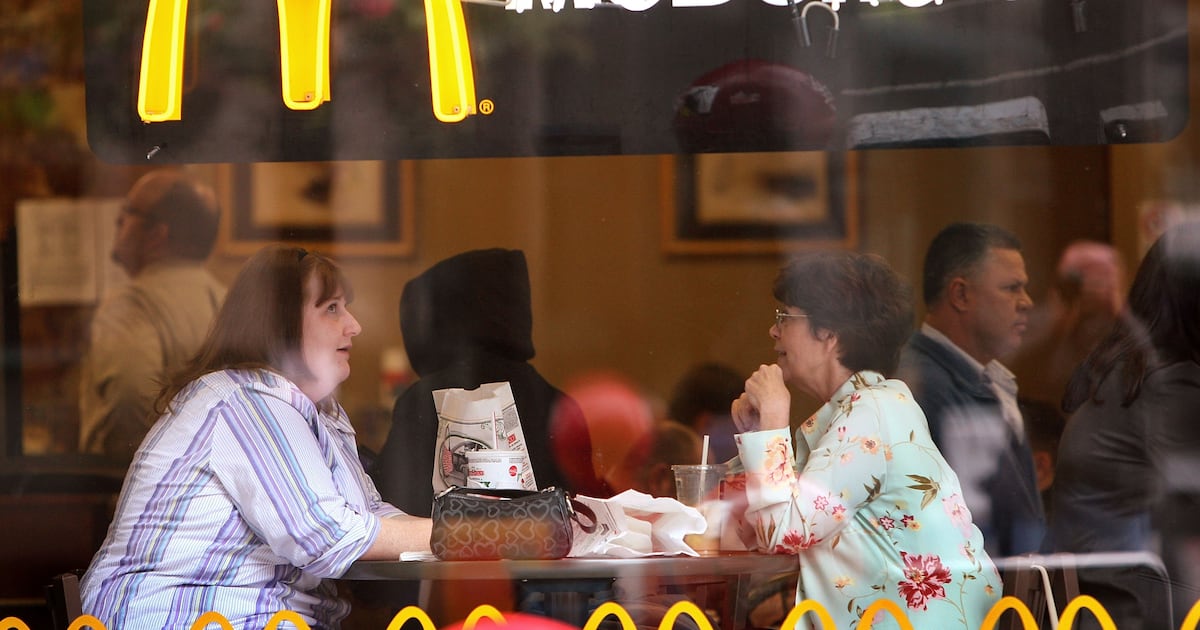
Read more on post.
With budget day fast approaching, senior Government figures have been filling the airwaves and column inches setting out their stall.
Among these are Minister for Finance Paschal Donohoe and Minister for Public Expenditure Jack Chambers, who have been preaching the virtues of “prudent management of the public finances”.
After five years during which permanent spending net of tax changes has risen by almost 10 per cent per year on average, a Damascene conversion to such prudence would be welcome.
All the signs, however, are that this conversion is illusory and more of an Augustinian plea: grant me prudence, Lord, but not yet.
According to the Government’s published plans, spending next year will increase by around €8 billion while tax cuts will reduce revenues by €1.4 billion. This amounts to a budget package that will raise spending net of tax changes by 6.5 per cent – far faster than the sustainable growth rate of the economy.
Such rapid spending rises risk overheating the economy and stoking faster inflation just as it is subsiding. Estimates by the Central Bank suggest that prices are already 2 per cent higher than they would have been had spending grown in line with the Government’s own – never obeyed and now discarded – fiscal rule.
That amounts to a reduction in purchasing power of around €1,000 per year for the average household.
Of course, all this assumes that the Government sticks to the plans it announces in the budget – something which it hasn’t done for many years. For example, Budget 2025 set out plans for spending to increase by €3 billion this year. Instead, it is on track to rise by €7.6 billion, with overspends in capital, health and social protection expenditure the prime culprits.
Concerns about the credibility of the Government’s plans lie not only in its apparent inability to control spending. Government figures have also suggested their “solemn commitment” to cut VAT on hospitality will be delayed until the summer so as to “create more room for tax cuts” in the budget. This would involve only counting half the €600-million-plus annual cost of the measure for budget purposes and ignoring the longer-run fiscal consequences entirely.
[ Budget 2026 plans will limit response to future economic shocks, committee hearsOpens in new window ]
By the same flawed logic, a tax cut introduced on December 31st next year would be free, whatever it cost in the years after. Such basic fiscal innumeracy compounds the economic illiteracy of a measure that will disproportionately benefit the large or expensive hospitality businesses that need it least, such as McDonald’s or a Michelin-starred restaurant.
Suggestions that multinational fast-food chains could somehow be excluded from the cut are a recipe for disaster that will merely serve to complicate the tax code and keep tax lawyers busy for years.
Cutting VAT on hospitality will also serve to further erode our already fragile tax base, which is increasingly reliant on corporation tax receipts. These are highly concentrated, with three-quarters paid by a handful of American companies and two-fifths by just three. And it is thanks only to these corporation tax receipts that the Government expects to run a surplus of revenue over expenditure.
Stripping out the receipts that the Department of Finance itself considers to be temporary windfalls, the Government would this year be spending €8 billion more than it collects. This leaves our fiscal fortunes acutely exposed to the whims of Donald Trump and the vagaries of US politics.
As the ESRI warned this week, measures to reduce the price or relocate the production of pharmaceuticals sold in the United States could have a profound impact on the profits of US pharma firms operating in Ireland, and so their corporation tax payments. Instead of responding to these risks by broadening our tax base, successive budgets have narrowed it. Cuts to the Universal Social Charge (USC) and Local Property Tax (LPT)– introduced in the aftermath of the financial crisis as measures to broaden the base – have reduced annual tax revenues by at least €3.5 billion.
Such cuts go directly against the core recommendations of the Commission on Taxation and Welfare that Donohoe himself established as part of the last government. Ignoring such advice is, of course, the prerogative of the Minister and the Government.
But rather than prudence, it demonstrates an affinity for the “when I have it, I spend it” school of economic policy exemplified by the former minister for finance Charlie McCreevy.
So too does the Government’s plan to “recalibrate its fiscal strategy” and cut back spending in the event of economic conditions worsening seriously.
Committing to ramp up expenditure if the good times continue, but row back if they get worse, is precisely the sort of procyclical policy that exacerbated boom-and-bust over the 2000s.
As the Fiscal Advisory Council – set up to prevent the mistakes of the past – has argued, slower spending growth and fewer tax cuts now would provide greater scope to step in and boost demand should any of the (many) economic threats on the horizon materialise.
Prudent management of the public finances does not prohibit spending increases or new initiatives. It just requires that the Government does not try to do everything, everywhere, all at once.
Ministers have said the focus of this budget will be on infrastructure, for which there is a strong case. Research suggests we have a substantial shortfall in our levels of infrastructure compared to other high-income countries, particularly related to housing, transport and electricity.
Addressing these deficits will require sustained investment, and means doing less elsewhere. If infrastructure is the priority, then the Government should act as though it is.
The budget cannot be prudent, prioritise infrastructure and cut VAT on Big Macs.
Barra Roantree is director of the MSc in Economic Policy at Trinity College Dublin. He was a member of the last government’s commission on taxation and welfare.
-
Politics5 days ago
European Parliament snubs Orbán with vote to shield Italian MEP from Hungarian arrest
-
Culture2 months ago
Fatal, flashy and indecent – the movies of Adrian Lyne revisited
-
Environment1 week ago
Key oceans treaty crosses threshold to come into force
-
Culture3 weeks ago
Life, loss, fame & family – the IFI Documentary Festival in focus
-
Culture5 days ago
Twilight at 20: the many afterlives of Stephenie Meyer’s vampires
-
Culture2 weeks ago
Farewell, Sundance – how Robert Redford changed cinema forever
-
Culture4 weeks ago
What is KPop Demon Hunters, and why is everyone talking about it?
-
Health6 days ago
EU renews support for WHO’s Universal Health Coverage Partnership













































